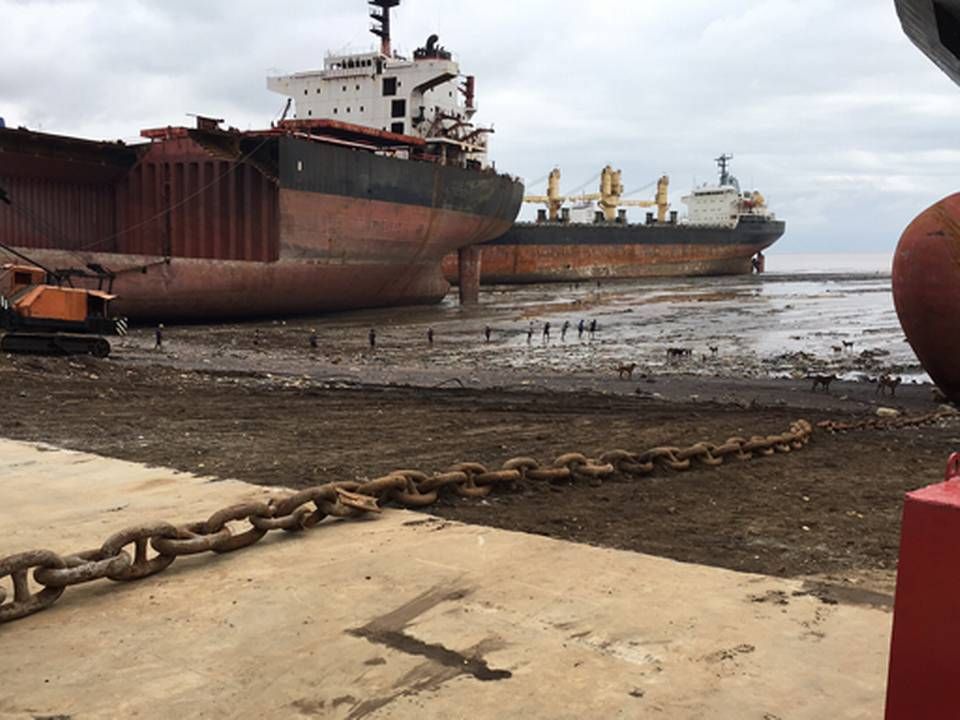Investors urge shipping to improve its governance

NEW YORK
Ship owners increasingly face a broad range of ethical requirements from their investors in a development which could make it more difficult for the bad eggs to raise money.
After several years in which the shipping sector has more or less escaped the world's growing focus on corporate governance and environmental considerations, a new trend is now emerging in the capital markets.
More investors are demanding that shipping companies must be run according to the principles of corporate governance, as well as setting requirements for compliance with environmental regulations and human rights.
This pressure comes partly from private investors, who are particularly focused on curbing poor corporate governance and a lack of respect for shareholders.
But the pressure also comes from banks and top investors, such as the Norwegian Global Pension Fund and the world's biggest investment company, Blackrock, which both recently introduced new requirements concerning social responsibility.
In shipping, it caused a stir when the Norwegian Global Pension Fund, which invests the country's income from the Norwegian oil sector, decided to ditch its investments in four carriers, including Evergreen, due to them having scrapped vessels on beaches in South Asia.
Deterring investors
One of the critical voices that has previously lashed out at shipping for placing management's interests above those of shareholders is Deutsche Bank's Lead Analyst for U.S. Transporation & Shipping, Amit Mehrotra. He notes that a new critical consciousness has spread among investors.
"I have zero tolerance for bad governance. Most people I talk to from the institutional investor base have zero tolerance for it as well," he tells ShippingWatch, describing the change as "signifant."
As examples of bad governance, he mentions non-transparent transactions involving management's private companies and payments to the executive team for buying and selling ships. This has deterred investors from placing money in shipping, and it is therefore time to correct this, says Mehrotra.
He points out that the worst-governed companies have lost 90-95 percent of their stock market value over the past five years. On the other hand, companies such as Eagle Bulk, Euronav and Ardmore have found it easier to raise money, as they are transparent and aligned with their shareholders.
"The evidence clearly shows that there is a tangible result in terms of performance. I am not saying shipping companies should have good governance, because it is the right thing to do, although it is, but because at the end of the day it translates to more money," he says.
Does that mean you advise your clients not to invest in companies that have bad corporate governance?
"Going forward, yes that is the case. I do not care what the upside is anymore, if you have bad corporate governance, I am not going to be recommending investing in your company from a research standpoint," says Mehrotra, adding that he believes things are slowly starting to change.
Major bank has refused loans
At the major shipping banks, a new focus on proper governance in shipping has also emerged.
Martin Lunder, Managing Director of Shipping, Offshore & Oil Services at Nordea in New York, participated Tuesday in the Hellenic/Norwegian-American Chambers' Shipping Conference in Manhattan, and proper corporate governance featured as a theme in several of the discussions.
He stressed that the matter plays a bigger role today than in the past when Nordea issues loans.
"If we look at how to select customers, we look at the good old concepts like owner, management and reputation. But then we also have things we probably didn't focus that much on before. That's good corporate governance and transparency. These are very important things for us," he said.
The shipping banks have also increased their focus on whether carriers are socially responsible and look out for the environment. This applies not least to Dutch ABN Amro, which also participated in the conference Tuesday.
Francis Birkeland, the bank's Head of Transport & Logistics for the Americas, explained that ABN Amro rates all its customers according to a series of social and environmental criteria – for instance how carriers scrap their vessels.
"This is all part of a bigger picture we create to better understand how our clients are behaving. And if they behave sub-standard they will simply not get anything," he said, noting that the bank has been a standard bearer behind a series of guidelines for responsible shipbreaking, guidelines onto which Nordea has signed.
English Edit: Daniel Logan Berg-Munch
World's largest investor not convinced by the Hong Kong convention
Related articles
Norway's oil fund expands monitoring of shipping sector
For subscribers


















